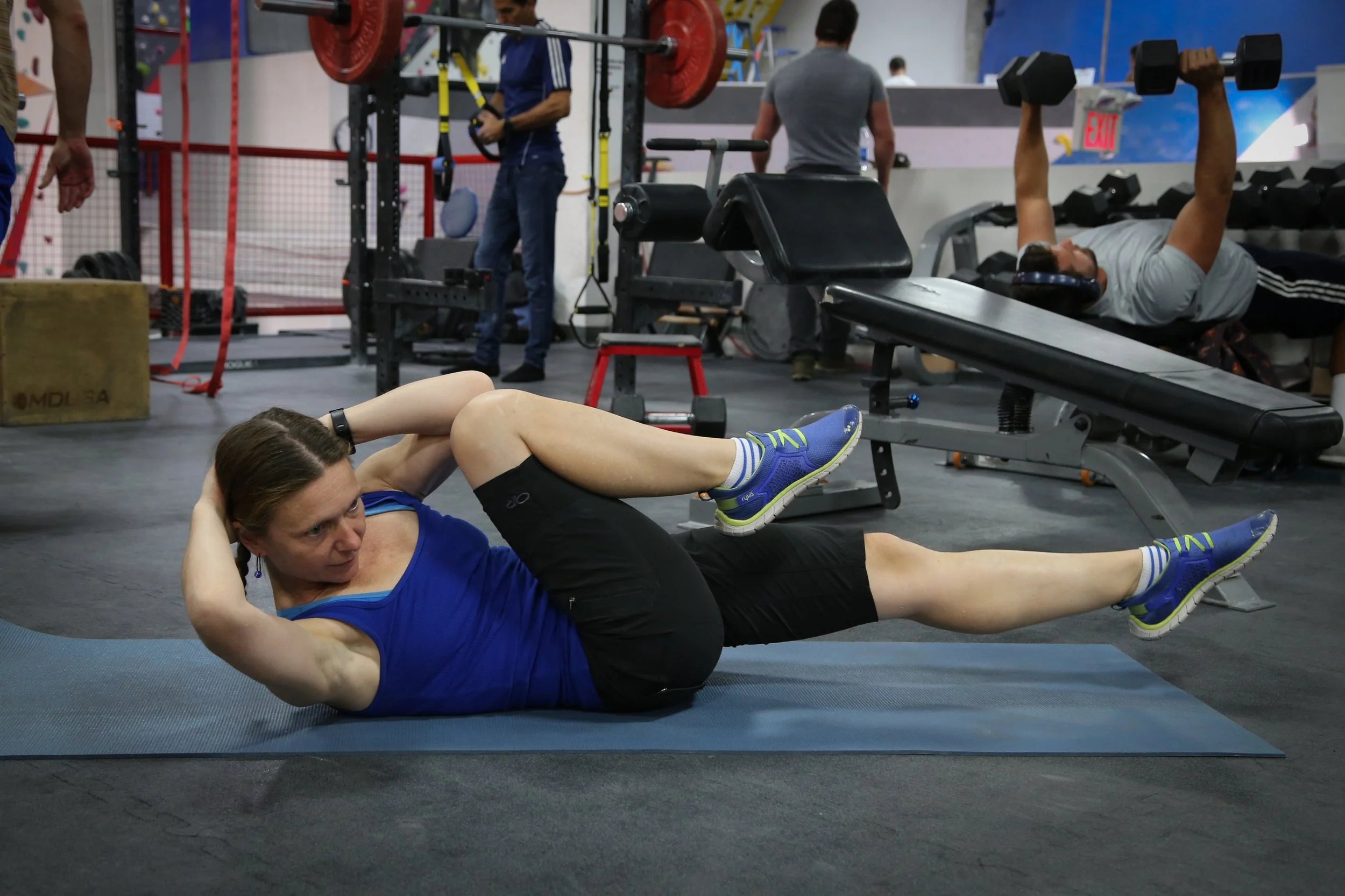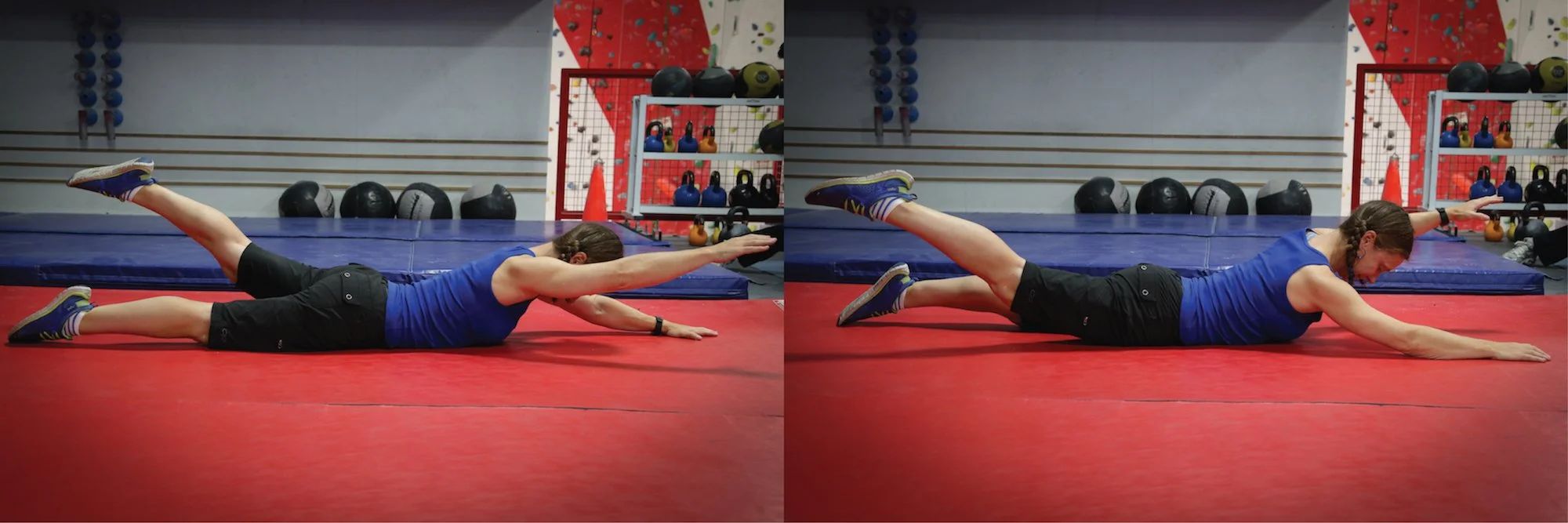Training for ice Climbing and Drytooling:
Basic Core
This post is part of a series on Training For Ice Climbing and Drytooling. Click below for sequential posts:
Build a Solid Foundation
Fortification
Basic Core
Hard Core
Endurance
Special Techniques
Head Games
Taking It Outside
NOTE: These workouts are intended for the fitness-minded climber. It’s up to you to manage your time and expectations. You may not initially be able to achieve the workout as described. Just working towards that goal will do wonders to get you ready for ice season.
Photo: Ramon Marin
You’ve been doing:
Foundation and Fortification
You swing into hard ice and it dinner-plates alarmingly. Leveraging off the current placement, you work out the pick, clear out the shattered ice, swing again. Good stick. Body out from the ice, look down at your feet, lift a foot onto the next blob and kick to set your front points, step up, thrust hips into the ice, reach up and swing your other tool…
Un-metaphorically, all the force we need to drive in our picks and front points comes from deep inside us. Every single move we do in ice climbing relies on one thing, the Core.
Your core is a complex series of muscles, extending far beyond your abs, including everything besides your arms and legs. Your core muscle group is incorporated in almost every movement in climbing. It is imperative to strengthen and stabilize core muscles to be able to transfer energy into our swings, our kicks, and into upward movement.
Basic CORE Workout 3x Week (up to 4x a week)
For all of these exercises do 6-12 per set, or till you get a good burn. If you are not getting a good burn, use a weights to challenge your core.
Crunches
These are crunches, not sit-ups. When we crunch, we take the emphasis off of our abdomen and onto our hip flexors. Focus on either bringing your ribs down to your belly button, or pushing the small of your back into the floor, whichever works for you. It will raise your chest a few inches off of the ground. This little motion is all you need to target your abs.
There are many variations of crunches. We like doing crunches with legs up, twists (challenges obliques), and the bicycle.
Things to watch out for:
You crunch too high - Targets the wrong muscles.
You use momentum - Negates the point of the workout and puts undo stress on joints.
You yank your neck - Keep your chin off your chest, try crossing your arms over your chest or placing your fingertips around your ears.
You relax on the way down - You’re skipping half the workout, and it’ll take twice as long. Squeeze abs on the way up, AND the way down.
You hold your breath - This is a bad habit many climbers make. When breathing stops, your body doesn’t know what to do. Are you drowning? Are you stuck on the toilet? Make sure to breath smoothly and constantly to focus on the effort. Develop this habit, use it when climbing and it will help keep your mind in check too.
Legs Up Crunches 3 x 6-12 reps
Bicycle Crunches 3 x 6-12 reps
Twisted Crunches 3 x 6-12 reps
Reverse Crunches
The reverse crunch is a basic core strengthening exercise that improves stability throughout the lower back, hips, and spine. They help you protect your back and create a greater range of motion, which helps place more tension on your abdominal muscle, precisely what’s needed for safe, stable ice climbing technique.
-Lie on the ground in a traditional crunch position, your toes to the sky and hands underneath your head or on the floor beside your torso.
-Press your lower back into the floor and pull in your belly button to lift your butt off the floor.
-Using your core, pull your hips up so that your tailbone raises off of the ground. For slight bonus lift your shoulder blades off of the floor.
-Slowly lower hips and return to the starting position.
-Make sure not to use swinging momentum from your legs to power your reps. Focus on squeezing those abs!
Reverse Crunches 3 x 6-12 reps
Contralateral Limb Raises aka Superman 3 x 15
These target your back, particularly the muscles that help stabilize your spine.
- Lie on your stomach with arms outstretched.
- Slowly lift one arm a few inches off the floor, keeping it straight without rotating your shoulders.
- Simultaneously lift the leg of your opposite side.
- Hold the position for 5 seconds, then lower your arm and leg back down.
Contralateral Limb Raises 3 x 6-12 reps
Single Leg Dead Lift
The Single Leg Dead Lift is a great exercise as it incorporates active hip extension and flexion on a single-leg stance, just like running, climbing up stairs, and particularly important to us ice climbers, kicking. Doing deadlifts also increases strength, balance, and flexibility. If you’re doing them right, more than likely you’ll feel a stretch in your hamstrings. Watch out that you do not bend your spine on the way down, but rather take the stretch in your hamstrings. The idea is to keep your back flat and pivot from the hips.
- Start standing position.
- Reach leg back, lift leg and hinge upper torso forward at same time. Move smoothly and in control.
- End with leg and torso parallel to the ground. Make sure you hips are square to the ground too.
- Return to standing position.
Single Leg Dead Lift 3 x 6-12 reps
If you’ve been climbing for a while and you have developed some core strength, SLDLs may be relatively easy. Increase the difficulty by holding a kettlebell or freeweight:
In our next post we really dive into difficult core exercises. Lay a strong foundation with the Basic CORE Workout now to be prepared for the challenges ahead.







